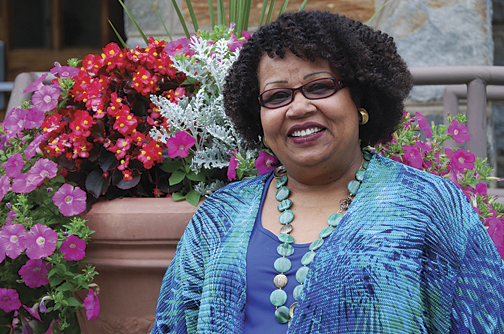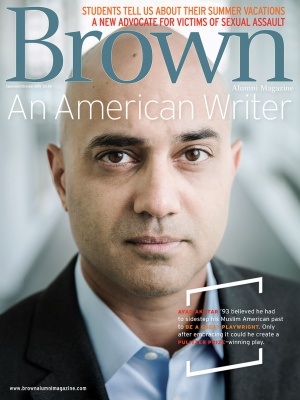When Sheryl Brissett-Chapman ’71 became executive director of the
National Center for Children and Families (NCCF), a Bethesda, Maryland,
nonprofit that supports children, youth, and families in the region, it
was a small group home for adolescents and a homeless shelter for
families. Twenty-five years later, the center has a staff of 170 and 24
support programs serving 40,000 clients. Chapman, an expert in
dysregulated adolescent behavior, also writes and speaks about such
issues as juvenile justice systems reform, poverty and homelessness,
childhood trauma, domestic violence, cultural competency, and ethics.
For the past 30 years, Dr. Chapman has also taught graduate courses in
child and family welfare at Howard University’s School of Social Work.

CHAPMAN Before NCCF, I was at the Children’s National Medical Center. I would tell my team that I needed us to collect data on these sex-abuse cases coming in. We discovered that the hospital was letting kids who were under 12 years old out with STDs. Something was going on, so we lobbied for a policy that got the children assessed. We began to help the hospital look closely at these cases, and then we began to look at our assessment data, and then we became the only ones in [Washington, D.C.] that had data, and then we became the experts of the federal model because we had to change our practice to address data.
BAM What are the limitations of such a data-driven approach, if any?
CHAPMAN Being curious and understanding and [approaching a problem] formally and systematically is important to me. Data is powerful for me. You’ve got to do research so you can understand the practice implications. Then you can understand policy and resource allocations . . . , but then you’ve got to tell the story.
BAM Why is storytelling important?
CHAPMAN Storytelling is the best way to help those who have more than they need connect with those who desperately need. I tell the story of the woman with twins who drove up in a Volvo with $500 in cash and said, “When my husband lost his high-tech exec job, this is all we had between us and your shelter. I want to give it to you because he just got another high-powered job and we’re going to be okay.” Stories are powerful; they help us connect to the common human reality.
BAM You studied theater at Brown. Do you still use that training in your work today?
CHAPMAN I’ll tell you, my study of drama has translated in so many ways. At Brown, I studied theater with George Houston Bass. He helped me found the Rites and Reason Theatre. George taught us how to research our plays and to write plays that were original. He told us that you have to talk to people, you have to interview them, you have to be curious and open to hearing their worldview and what they’ve been through.
BAM What’s the story you most want to tell these days?
CHAPMAN With my staff at NCCF, I’m researching how to engage traumatized African American male teenagers in the child welfare and juvenile justice systems. The book will have both quantitative and qualitative findings. We’ll have case studies as well as aggregate quantitative data. We haven’t nailed down a title yet, but it will be advancing this idea that these males hide behind masks.
BAM Besides the book, do you have any other legacies you’d like to leave at NCCF?
CHAPMAN We’re building a leadership and training institute at NCCF focused on troubled African American young men and homeless parents, where I’ll eventually be a senior scholar. When I retire from the role of executive director, I see myself moving more into writing stories. I have so many wonderful stories.





